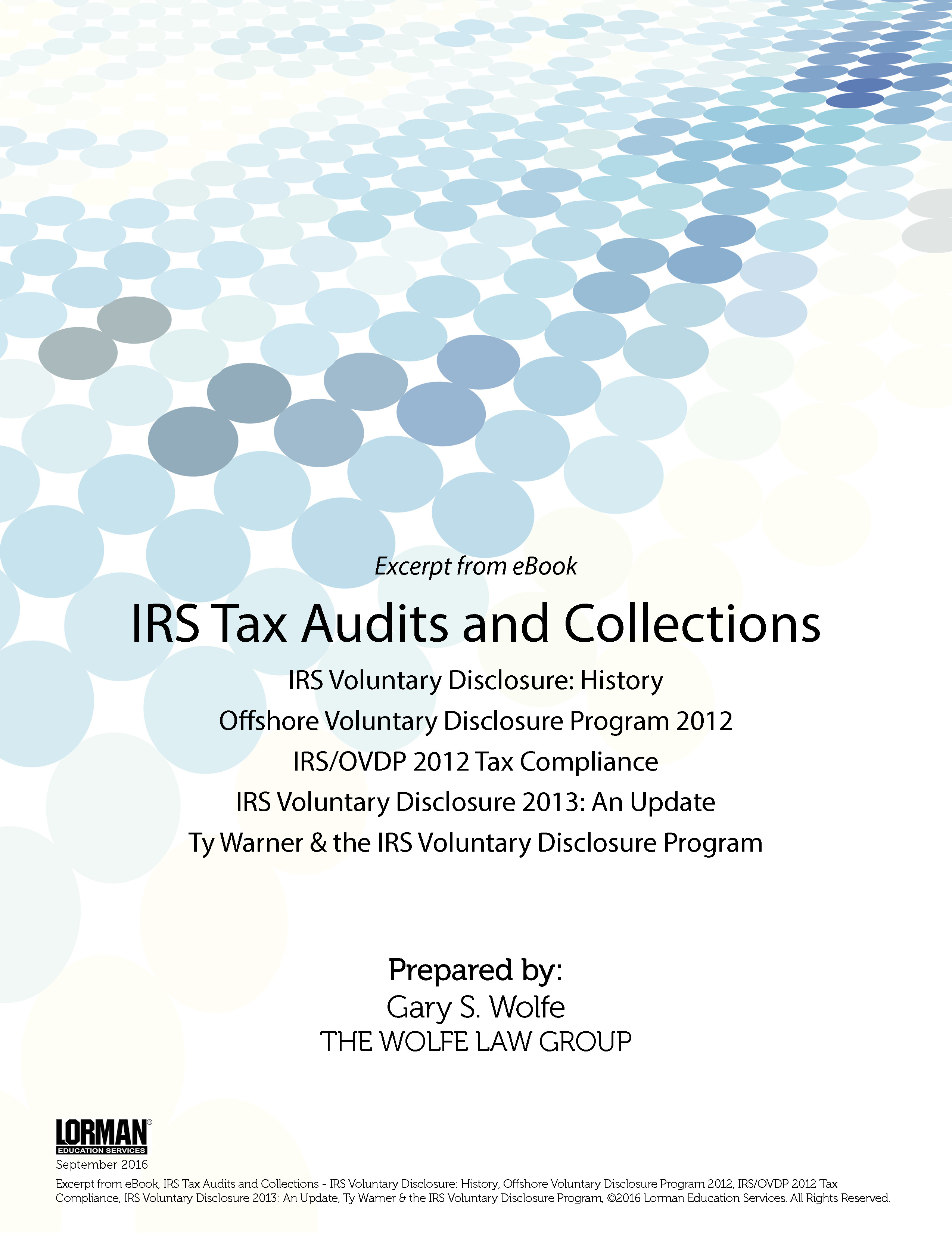Between 1945 and 1952, the IRS had a "voluntary disclosure" policy under which a taxpayer who failed to file a return or declare his full income and pay the tax due could escape criminal prosecution through voluntary disclosure of the deficiency, (so long as the voluntary disclosure was made before an investigation was started).
If the IRS determined that a voluntary disclosure had been made, no recommendation for criminal prosecution would be made to the Department of Justice.
Under current IRS practice, the review includes whether there was a true "voluntary disclosure" along with other factors in determining whether or not to recommend prosecution to the Department of Justice. (IRM, Chief Counsel Directive Manual (31) 330 (Dec. 11, 1989) (Voluntary Disclosure).
IRM 9781, Special Agents Handbook § 342.14, MT 9781-125 (Apr. 10, 1990) (Voluntary Disclosure). (although prosecution after voluntary disclosure is not precluded, the "IRS will carefully consider and weigh the voluntary disclosure, along with all other facts and circumstances, in deciding whether or not to recommend prosecution").”
Download this white paper to continue reading …
Our author, Gary S. Wolfe, has more than 34 years of experience, specializing in IRS Tax Audits and International Tax Planning/Tax Compliance, and International Asset Protection.
Agenda
Faculty
Gary S. Wolfe
The Wolfe Law Group
Our author, Gary S. Wolfe, has more than 34 years of experience, specializing in IRS Tax Audits and International Tax Planning/Tax Compliance, and International Asset Protection.
All of your training, right here at Lorman.
Pay once and get a full year of unlimited training in any format, any time!
- Live Webinars
- OnDemand Webinars
- MP3 Downloads
- Course Manuals
- Audio Recordings*
- Executive Reports
- White Papers and Articles
- Sponsored Live Webinars
Additional benefits include:
- State Specific Credit Tracker
- Members Only Newsletter
- All-Access Pass Course Concierge
* For audio recordings you only pay shipping
Questions? Call 877-296-2169 to speak with a real person.
Thank You!
Download White PaperMore Program Information

Access to all training products $699/year
Unlimited Lorman Training
With the All-Access Pass there is no guessing what you will need for your yearly training budget. $699 will cover all of your training needs for an entire year!
Easy Registrations
Once you purchase your All-Access Pass you will never be any further than one-click away from attending any Lorman training course.
Invest in Yourself
You haven't gotten to where you are professionally by luck alone; it's taken a lot of hard work and training. Invest in yourself with the All-Access Pass.